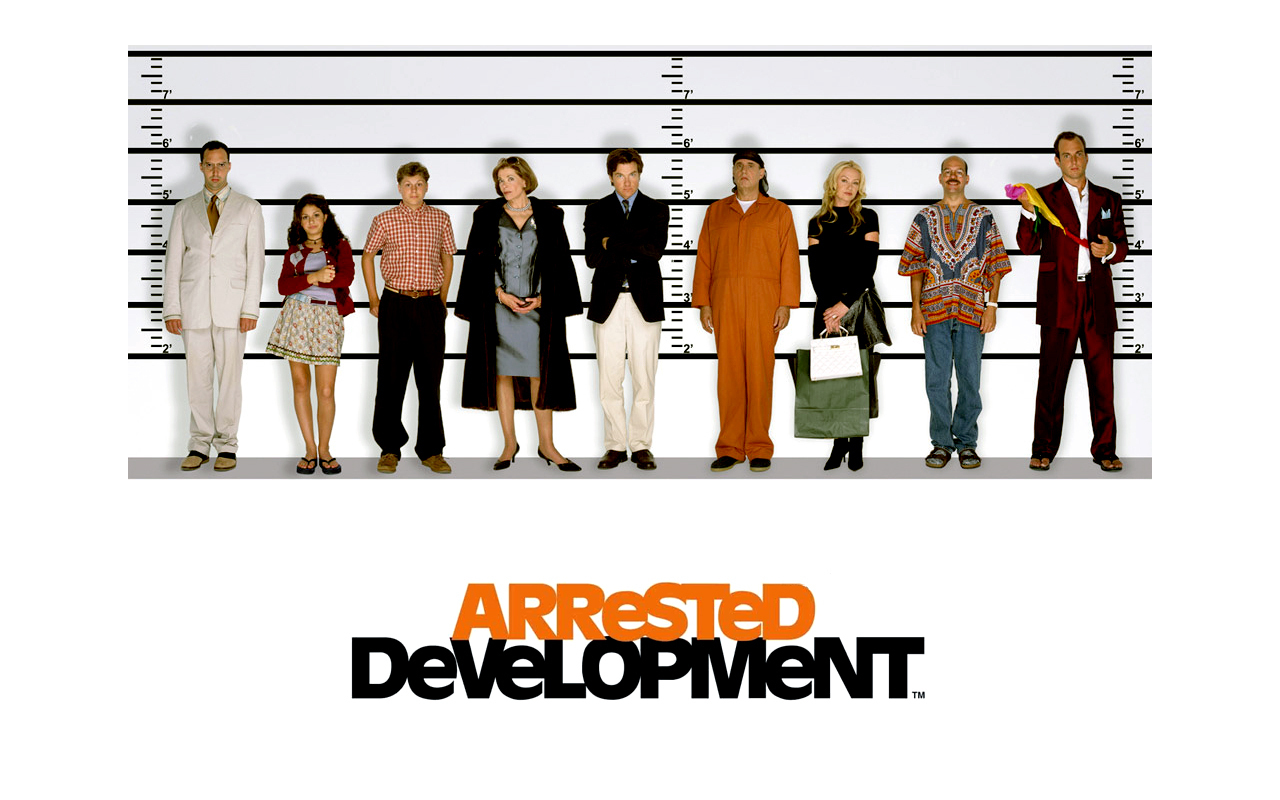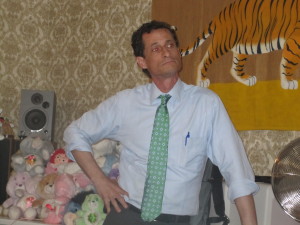[Here thar be spoilers!]
It took us about a week of evening viewing, buy my wife and I watched all 15 episodes of the new, fourth season of Arrested Development. I think this Washington Post review does a pretty good job of summarizing what the show has historically done right artistically:
“Arrested Development” was five years ahead of its time. Its meme-ability predated the rise of the meme. Its parodies of 1 percenters and malfeasant corporations were 1,000 news cycles ahead of the subprime mortgage crisis and the Olympic debut of Rafalca. The metastatic third and final network season, which wrapped in early 2006, thumbed its nose at the mundane forces that brought about its demise: modest viewership, fleeing advertisers and fickle TV executives. Each would soon be immaterial to a series’ distribution and survival.
Dan Zak, who wrote the review, then goes on to heap accolades on the newest season, although conceding that it’s not exactly cotton-candy entertainment:
The new 15-episode season of “Arrested Development” is staggering in its ambition, surgical in its execution and diabolical in its conclusion. It’s a chore to watch and a delight to decrypt. Its overwhelmingness contributes to its initial underwhelmingness. But in time, with a moment to reflect, it begins to feel like the fullest and fraughtest expression of its form.
It is, in a perverse way, the “Ulysses” of sitcoms.

Maybe Zak is right, but the vicious ambition of the show is not what drew me in as a fan in the first place, and so the most recent season missed it’s mark with me.









